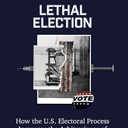
In 1997, a St. Louis County, Missouri jury unanimously voted to sentence David Barnett to death. Eighteen years later, after learning horrific details of the physical and sexual abuse to which Barnett had been subjected as a small child, Andrew Dazey — the jury foreman in Barnett’s trial — says “[t]here’s no way” he would have voted for death. At trial, Barnett’s lawyer presented some evidence of his client’s abuse, mental illness, and suicide attempts. However, he failed to present at least 11 available mitigation witnesses who could have provided critical additional mitigating evidence, including evidence that Barnett’s mother had abused alcohol and diet pills while she was pregnant with him, wanted to abandon the newborn at the hospital, and repeatedly gave Barnett away — once to a suicidal, drug addicted prostitute and other times to a violent alcoholic man who permitted the child to be sexually abused, physically assaulted, and forced to drink dishwashing liquid, among other horrors. When U.S. District Judge E. Richard Webber overturned Barnett’s death sentence in August, he wrote that, with the new evidence presented on appeal, “at least one juror would have determined the balance of aggravating and mitigating circumstances did not warrant death in Mr. Barnett’s case.” Juror interviews by the St. Louis Post-Disatch suggest that he was right. Dazey told the paper, “David should not be on death row.” Dazey believes that “had a fraction of this information been available” at trial, a majority of jurors would have voted differently. “I have never read where there was so much rejection in one life…If this wasn’t a case I was involved in, I would have thought it was a fiction novel. Everybody failed to recognize what was going on here.”
Juror James Chickos, who hadn’t read the court’s opinion in detail, told the Post-Dispatch he wasn’t sure if learning the details of Barnett’s childhood abuse and neglect would have changed his vote, but said, “I’m glad that the federal judge did what he did. It certainly could have made a difference.” A third juror told the paper that she had needed therapy after serving on the jury, and declined the paper’s offer to review the new evidence.
(R. Patrick, “Juror who voted to execute Glendale killer now hopes for mercy,” St. Louis Post-Dispatch, December 22, 2015.) See New Voices and Arbitrariness.



